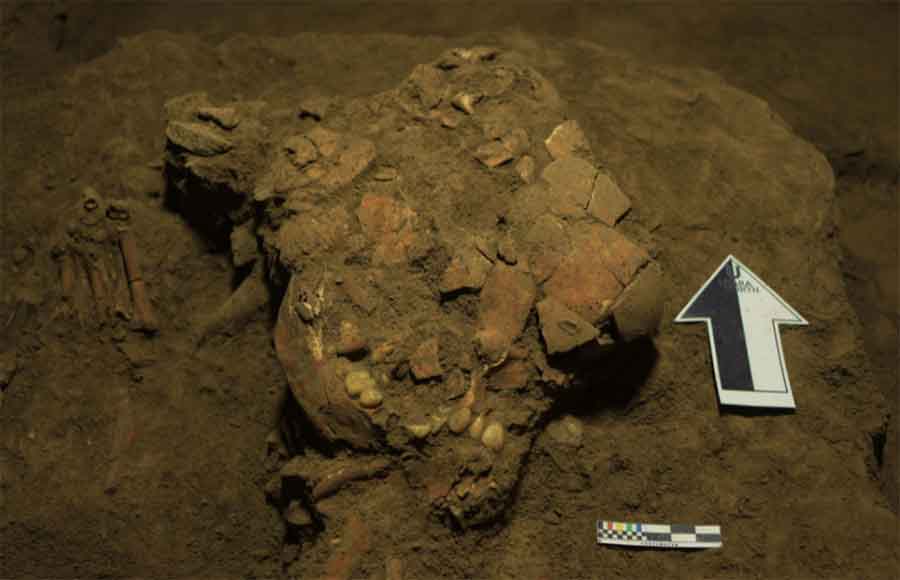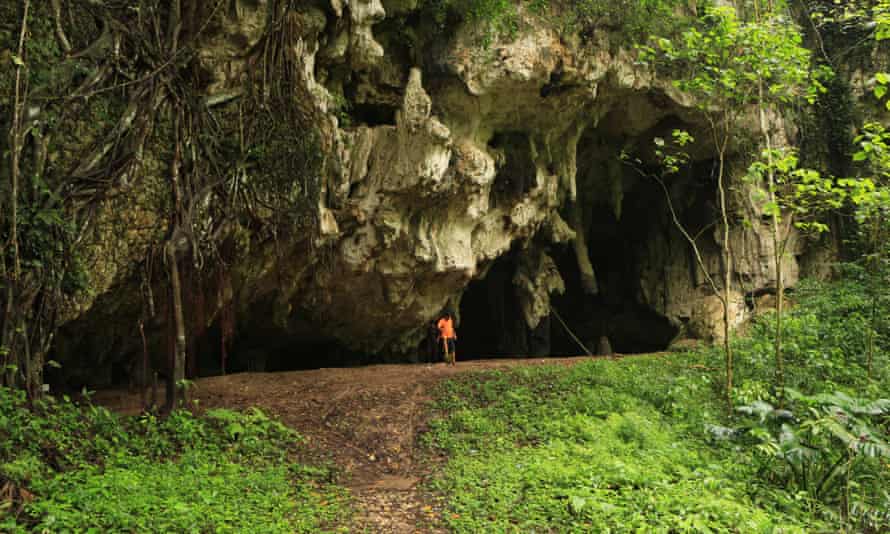Fri 27 August 2021:
Archaeologists uncovered ancient DNA in the remains of a lady who died 7,200 years ago in Indonesia, a discovery that casts doubt on earlier assumptions about early human migration.
The remains of a teenager known as Bessé were unearthed in the Leang Panninge cave on Sulawesi Island, Indonesia. In 2015, the first excavations were carried out.

It was found among artefacts from the Toalean people, an early culture of hunter-gatherers in the region. The remains are the first known skeleton of a Toalean.
The study, which was published in the journal Nature on Wednesday, was a collaboration between Indonesian and international researchers. Excavation began in 2015.
“This is the first time anyone has reported the discovery of ancient human DNA from the vast island region between mainland Asia and Australia,” Adam Brumm, archaeologist at the Australian Research Centre for Human Evolution at Griffith University in Brisbane, who co-led the research, told AFP Friday.
Brumm was referring to an area stretching from Kalimantan and Lombok to the western tip of Papua that is known to scientists as Wallacea.

Researchers found the excavation to be particularly challenging because DNA can be easily degraded in the tropical climate.
Analysis of the DNA revealed that the woman was part of a population group related to modern day Papuans and Indigenous Australians.
However, the genome is also linked to a previously unknown divergent human lineage not found anywhere else in the world.
The research challenges previous theories about the arrival times of different groups of humans in the region.
———————————————————————————————————————-
FOLLOW INDEPENDENT PRESS:
TWITTER (CLICK HERE)
https://twitter.com/IpIndependent
FACEBOOK (CLICK HERE)
https://web.facebook.com/ipindependent
Think your friends would be interested? Share this story!




















